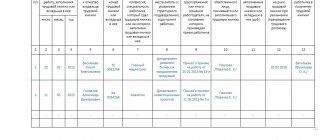Last modified: January 2021
Cash savings in the accounts of financial organizations are considered tangible assets and are included in the inheritance estate. To inherit a deposit, it is enough to draw up a testamentary disposition at the banking institution storing the funds, freeing the testator from visits to the notary and financial costs. In terms of legal force, the document is equivalent to a standard will without the corresponding registration and payment of notary services.
Concept and forms of testamentary disposition
In modern civil law, the concept of “testamentary disposition” means any circumstances in relation to the testator, the occurrence or implementation of which is a prerequisite for further entry into inheritance rights.
The subject of a testamentary disposition can be any property, whether it already belongs to the testator or not. In addition, a testamentary disposition may also not concern any property. Its subject may be a special order of the testator, the execution of which will be necessary in order to receive the inheritance.
The actual subjects of testamentary dispositions are the testator and the heir.
The concept and principle of freedom of disposal provides that a citizen has the right to bequeath absolutely any property at his own discretion.
The principle of freedom also applies to the choice of heirs.
Violation of the principle of freedom means that the citizen did not express his own choice. This entails consequences for canceling the document.
The current Civil Code of the Russian Federation identifies several forms that characterize such a concept as a testamentary disposition:
- about the designated heir. The content of this document will include the conditions under which the procedure for entering into inheritance rights will depend on certain circumstances. For example, the testator may indicate that his son will receive property only if the testator’s daughter refuses this property, etc.;
- about special conditions regarding funerals. It is believed that for many testators the ceremony itself, its form, order, timing, special conditions and other individual nuances are of great importance. In this case, the heirs of the property, in accordance with the principle of freedom of disposal, may be assigned a certain responsibility for fulfilling all the specified conditions contained in the contents of the document;
- about special conditions for accepting an inheritance. This may include establishing a wide variety of conditions, for example, marriage, solving a certain problem, graduating from university, obtaining a power of attorney, paying compensation to another person, drawing up a lifelong maintenance agreement, etc.;
- on assigning responsibility and determining the executor of the will in accordance with the principle of freedom. The execution of a will can be entrusted to a specific individual and for a specific period in accordance with the wishes of the testator. In this case, a power of attorney is required. A sample power of attorney can be obtained from the notary office. The absence of a power of attorney will make the procedure for assigning liability invalid;
- special testamentary dispositions regarding funds. This may include funds belonging to the testator that are in his bank account, for example, a testamentary disposition for a deposit in a savings bank.
Existing types of testamentary dispositions, based on the principle of freedom of will, may include other documents that meet the necessary criteria.
Rules for drawing up and content of a testamentary disposition
The modern Civil Code of the Russian Federation specifies certain requirements related to compliance with the rules for drawing up a testamentary disposition. These include absolutely all types of testamentary dispositions and their forms, the concept of which is given in the current legislation.
The testamentary disposition and its contents must include:
- date of application;
- concept and list of inherited property;
- a list of heirs who can receive this property;
- permissible period;
- information on the account containing funds if they have become the object of inheritance;
- power of attorney number, etc.
The contents of the will must also include all the necessary information about the testator. A sample of the document, its contents and special principles can be obtained from the city notary chamber. You can also pick up a testamentary disposition form there.
If deficiencies or one or more other errors are identified in the execution of the document, it may be declared invalid. Any interested person or several persons will be able to challenge the concept and content of the document by filing a statement of claim in the established form in court. Establishment of a fact and recognition of a document as invalid occurs only if there are undeniable grounds for this.
Do you need the help of an inheritance lawyer?
We will help you get the maximum amount of inherited property in the shortest possible time!
+7
The validity period of a testamentary disposition and the procedure for its execution
As with any legal document, the Civil Code of the Russian Federation establishes a certain period during which a testamentary disposition is valid and its execution can occur.
Many believe that the concept, rules, features and principles of an ordinary will also apply to testamentary disposition, however, this is not entirely true.
A testamentary disposition does not have a validity period as such. The specified period may only relate to certain obligations that the application contains.
The Civil Code of the Russian Federation establishes the general procedure and rules for making testamentary dispositions. An existing application can be executed at any time from the moment of the death of the testator.
Depending on what requirements are specified in the document, the heir will have to take all necessary actions to receive this or that property by inheritance. If any problem arises that makes it impossible to immediately carry out these actions, the heir retains the right to receive the property later.
Testamentary dispositions are made in accordance with the procedure established by law, in compliance with all necessary requirements of ownership and procedures.
The procedure for the entry into force of an order from the last will
Upon receiving news of the death of the testator, the notary visits the bank branch.
On the spot, the legal representative asks to confirm the eligibility of the papers or obtain information about the cancellation or adjustment of the form in relation to the funds in the account. Feedback upon request is provided by the branch manager. The act is endorsed with the stamp of the organization and sent to the applicant within 30 calendar days. If the request involves attaching a copy of the last statement of the will of the deceased, then the answer is attached under the main text.
Please note: execution of a testamentary disposition is not subject to payment of tax. The only expenses for the testator are notary services and technical maintenance of the process. When you contact the bank, the procedure is free.
Testamentary disposition of deposits and funds in banks
In accordance with the norms of the Civil Code of the Russian Federation, a testamentary disposition of funds is a special document by which the testator, during his lifetime, can determine who exactly should receive the money in his account by way of inheritance.
In modern civil law, the preparation, execution and signing of a testamentary disposition entails that the document acquires legal force equal to an ordinary will.
A testamentary disposition of funds in a bank must be drawn up precisely in the financial institution in which the testator’s account is opened.
It is a written statement establishing the fact of transfer of money to a specific person who will be able to receive it after the death of the testator. This testamentary disposition indicates all the important information - the data of one or more heirs who should receive money, funds and their amount, necessary actions, the possibility of compensation, as well as other provisions.
A testamentary disposition for a deposit is also a special document necessary to ensure that the funds in the testator’s deposit are transferred to a specific person at the time of opening of the inheritance. The application form can be written for one or more heirs. In the second case, the money in the account will be distributed in equal or unequal shares at the request of the testator.
The testamentary disposition of funds and confirmation of the fact of their transfer are certified by the signature of an authorized bank employee and the seal of the financial institution.
Registration procedure
To formalize a bank testamentary disposition, you must contact the financial institution where the document was drawn up. At the time of your visit, you must have an internal Russian passport with you.
Drawing up a document in a banking institution
The rules for making a testamentary disposition are regulated by current laws and are identical for any situation.
When the procedure is carried out in a financial institution, the algorithm will be as follows:
- contact the organization where the deposit account is opened with a passport and certificate of deposit;
- fill out the appropriate will form to distribute money in the event of death;
- hand over the form to the bank employee.
Read also: How to make a will for a child in 2021
After the inspection, the employee will register in a special register. One copy remains in storage at the bank, the second is transferred to the applicant.
Criteria for choosing a bank for a deposit
After the updates of the Civil Code of Russia, namely Part 3, enter into legal force, each financial institution carries out the approval procedure according to a unified format.
When contacting Sberbank JSC, the investor receives additional bonuses that allow them to quickly and easily register an inheritance. This course of affairs is due to the fact that since 2012, Sberbank has introduced a scheme for interaction in electronic format with the federal notary body. Thus, bank employees automatically enter information about the deposit by expression of will, which is displayed in the notary system.
Civil Code of the Russian Federation (part three)
Registration at the notary office
A testamentary disposition according to the sample is drawn up at a notary office.
The scheme of actions is similar to the usual approval of documents, including in relation to a package of papers. However, a notary is responsible for transferring the expression of will form to the banking institution. The second copy remains in the hands of the testator. Endorsement is not mandatory, since the document becomes valid upon registration with the bank. Information about the document is entered into the register, and storage is carried out in a fireproof safe.
An expression of will form without a wet seal installed by an employee of a financial institution is unauthorized.
Peculiarities of making testamentary dispositions of rights to funds
The Civil Code of the Russian Federation establishes special rules and principles for making testamentary dispositions relating to funds.
Citizens' deposits in their financial account are subject to inheritance in the general manner, regardless of the fact in which bank the money is in the account.
The procedure, forms and principles for making testamentary dispositions of rights to funds are established by the Government of the Russian Federation. According to these rules, the testator's application may relate to one account or several accounts opened with the bank. The sample application also includes the inclusion of other necessary information.
After the death of the testator, amounts of money are issued to the heirs on the basis of a certificate of inheritance, which they must have. It will not be possible to obtain an inheritance in any other way.
Immediately after the death of the testator, the notary sends a written request to the bank asking for confirmation of the fact of certification of the testamentary disposition by an authorized person of the bank and receipt of his account statement. The response from the bank must be sent to the notary within one month. In cases where one or more testamentary dispositions have been canceled, the notary is notified of this fact.
The execution, principles, form and procedure for making testamentary dispositions of rights to funds must fully comply with all the norms and rules of the Civil Code of the Russian Federation. Otherwise, if any inaccuracies or violations are established in a civil court, the document will be declared invalid.
Commentary to Art. 1128 Civil Code of the Russian Federation
1. The rules on testamentary dispositions for funds contributed by a citizen to a deposit or located in any other account of a citizen in a bank are enshrined in Art. 1128 and Decree of the Government of the Russian Federation of May 27, 2002 N 351 “On approval of the rules for making testamentary dispositions of rights to funds in banks” (SZ RF. 2002. N 22. Art. 2097).
On March 1, 2002, Part Three of the Civil Code came into force, establishing the general procedure for inheriting funds contributed to a deposit or held in any other account in any bank. There are no exceptions to this rule.
The legal significance of freedom of testamentary disposal of rights to funds in banks or deposits is expressed in the fact that these funds are always included in the compulsory share in the inheritance, and can also act as a means of repaying the debt of the testator.
At the same time, with the introduction of new rules, a problem arose in practice related to the procedure for issuing deposits bequeathed by citizens before March 1, 2002, if the death of the testator occurred after the entry into force of part three of the Civil Code. Savings Bank of the Russian Federation, referring to Art. 1128 of the Civil Code and clause 14 of the Rules for making testamentary dispositions of rights to funds in banks, refused to pay deposits to heirs without presenting a certificate of the right to inheritance. Notaries, in turn, refused to issue a certificate of the right to inheritance, since, according to paragraph. 2 tbsp. 561 of the Civil Code of 1964, contributions in respect of which testamentary dispositions were made were not included in the inheritance. To solve this problem, the Federal Law of November 11, 2003 “On introducing an amendment to the Federal Law “On the entry into force of part three of the Civil Code of the Russian Federation” (SZ RF. 2003. N 46 (Part I). Art. 4441) additions were made to provide for the preservation of a special legal regime for deposits for which the depositor’s order was made in accordance with Art. 561 of the Civil Code before the entry into force of part three of the Civil Code. Such deposits are not part of the inherited property, and the procedure and conditions for their issuance are not subject to the provisions of Section. V Civil Code "Inheritance Law".
If the person(s) specified in the order died before the investor or on the same day as him, then the testamentary order in the event of death loses its force. In this case, the funds in the deposit will be subject to the general provisions on inheritance.
2. In Art. 1128 proclaimed the principle of freedom of disposal of funds contributed by a citizen to a deposit or located in any other account of a citizen in a bank. A citizen, at his own discretion, has the right to dispose of them by drawing up a will in a notarized or equivalent to a notarized form, in the form of a closed will (Articles 1124 - 1127 of the Civil Code). In addition, a citizen has the right to dispose of funds in a bank account by making a testamentary disposition, which has the force of a notarized will. At the same time, the procedure for drawing up testamentary dispositions, provided for in Art. 1128 and the Rules for making testamentary dispositions of rights to funds in banks, is applicable to the disposal of rights to funds in any banks, and not just in the Savings Bank of the Russian Federation.
The rules on testamentary dispositions of rights to funds in banks also apply to other credit organizations that are granted the right to attract citizens’ funds into deposits or other accounts.
3. The execution of a testamentary disposition is made by a citizen free of charge in writing at the bank in which this account is located. To do this, you must present an identification document to the bank. The testator is informed about the contents of Art. Art. 1128, 1130, 1149, 1150 and 1162 of the Civil Code, which is noted in the testamentary disposition. Persons participating in the execution of a testamentary disposition are required to maintain the secrecy of the will. The testamentary disposition is signed by the testator in his own hand, indicating the date of its preparation. The text of a testamentary disposition can be written by hand or using technical means.
The details of a testamentary disposition are: the place and date of its execution; place of residence of the testator; surname, name, patronymic of citizens; full name and location of the legal entity to which the contribution is bequeathed.
If the testator has several bank accounts, he can draw up one testamentary disposition for all funds placed in several bank accounts, or for funds placed in one of these accounts.
The testator has the right to dispose of funds from his account in favor of several heirs, indicating in the testamentary disposition which of them is bequeathed what share. If the testator does not indicate shares in such an order, then the funds are issued to all these persons in equal shares. The testator can nominate an heir (Article 1121 of the Civil Code).
The testator has the right to determine in a testamentary order the conditions for issuing the deposit: for example, payment to the person to whom the deposit is bequeathed, certain amounts within the time frame established by the depositor, issuance of the deposit to the person after he reaches a certain age, etc.
4. A testamentary disposition is drawn up in two copies, certified by the signature of a bank employee and a seal. The first copy is given to the testator, and the second is kept in the bank.
To change or cancel a testamentary disposition, the testator must contact the bank where the testamentary disposition was drawn up and submit a personally signed testamentary disposition to this effect. In addition, the testator has the right to change or cancel a testamentary disposition on the basis of Art. 1130 GK.
Upon the death of the testator, the notary contacts the bank with a request (attaching a certified copy of the testator's death certificate) with a request to confirm the fact of certification of a specific testamentary disposition by a bank employee and the fact of its cancellation or change. The response to the request, signed by the head of the bank and certified by a seal, is sent to the notary.
Rights to funds in a deposit or other bank account, bequeathed in accordance with Art. Art. 1124 - 1127 of the Civil Code or by testamentary disposition, are included in the inheritance and are inherited on a general basis. These funds are issued to the heirs on the basis of a certificate of inheritance and in accordance with it. The exception is the funds necessary for a decent funeral (Article 1174 of the Civil Code), which can be received by the heir in a simplified manner in the amount of no more than 200 times the minimum wage.
The list of documents on the basis of which funds are paid depends on the specific case.
5. Funds contributed to the deposit or located in another bank account may relate to property jointly acquired by the spouses during the marriage. In accordance with paragraph 1 of Art. 34 of the Family Code, property acquired by spouses during marriage is their joint property. In addition, contributions made by spouses from the common property of the spouses in the name of their common minor children are considered to belong to these children and are not taken into account when dividing the common property of the spouses (paragraph 2, paragraph 5, article 38 of the Family Code). Consequently, wills and testamentary dispositions of spouses regarding rights to such funds apply only to the extent of the deceased spouse's share, but not to the entire share.
The inheritance may include the rights of citizens to receive compensation payments for deposits in the Savings Bank of the Russian Federation made before June 20, 1991. As is known, in the early 1990s. As a result of inflation, significant savings of citizens actually disappeared. In accordance with the Federal Law of May 10, 1995 N 73-FZ “On the restoration and protection of savings of citizens of the Russian Federation,” the state assumed guarantees for the restoration and safety of monetary savings created by citizens of the Russian Federation by depositing funds, including for deposits in the Savings Bank of the Russian Federation. To implement this Law, since 1996, the federal budget and resolutions of the Government of the Russian Federation have established the volume, categories and procedure for paying these compensations. Thus, in the Federal Law of July 24, 2007 N 198-FZ “On the federal budget for 2008 and for the planning period of 2009 and 2010”, as well as in the Decree of the Government of the Russian Federation of December 29, 2007 N 1004 “On the procedure for implementing in 2008, compensation payments to certain categories of citizens of the Russian Federation" it was established that in 2008, recipients of compensation and additional compensation will be citizens born in 1954 inclusive, disabled people of groups I and II, disabled people with III degree of disability, including including heirs belonging to these categories.
Thus, the circle of heirs (both by will and by law) who have the right to receive compensation payments on deposits in the Savings Bank of the Russian Federation is limited.
Challenging and canceling a testamentary disposition
Modern civil law provides for the cancellation of a testamentary disposition if there are compelling reasons for this. First of all, this right belongs to the testator or another person under the appropriate power of attorney. If, due to some problem or other reasons, his opinion has changed, he can cancel the current document by writing a statement in the prescribed form.
Cancellation of a testamentary disposition in relation to any property provides for the complete cancellation of the document and its recognition as invalid.
If a citizen wishes to cancel a bank order, he must contact this financial institution. Cancellation of a document will be based on a written statement from an individual. A sample application can be obtained from a financial institution.
Cancellation of a testamentary disposition will also be possible if a citizen decides to draw up a regular will. In this case, the application must contain an indication of this fact in order for the document to be declared invalid.
If, after the death of the testator, his relatives or other interested parties have claims to the current testamentary disposition, they will be able to challenge it in court. A sample statement of claim and power of attorney can be found in court.
The most common and weighty argument, as a rule, is information that the testator had health problems that did not allow him to fully understand his actions and their consequences. However, establishing the existence of this problem will be impossible without appropriate evidence. In this case, the establishment itself and the corresponding actions will fall on the plaintiff.
In cases where the judge's decision is positive, the document will be declared invalid. Recognizing it as invalid entails the consequences of complete cancellation of all provisions that were prescribed there. For example, consequences for the return of property that has already been transferred to the heir, for monetary compensation on the account, the establishment of new facts, etc.
Author of the article
How to cancel and change a document
To change the order, you need to visit the financial and credit organization where the form was drawn up.
The Civil Code of Russia states that in order to generate a new document, it is necessary that the old form be canceled. Therefore, if a new expression of will was canceled by the court, the property is distributed according to the first option - this rule applies to a will. Read also: Inheritance to parents after the death of a son
However, if the investor changes his mind about leaving the funds to the successors, he has the right to propose another order or write an application for cancellation. This can be done either independently or through a person authorized by a power of attorney.









